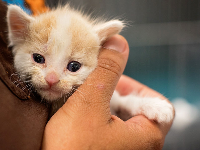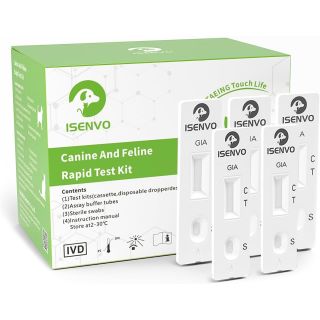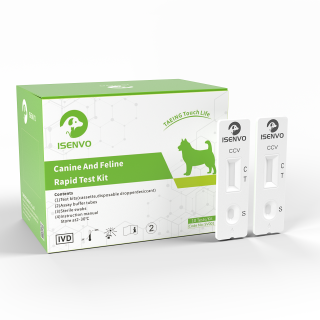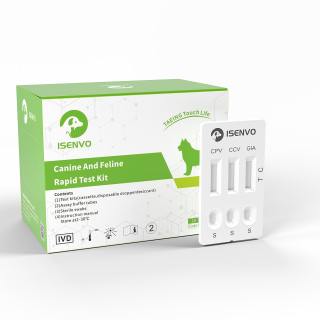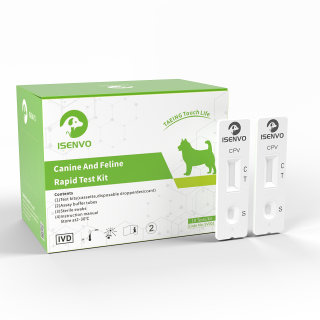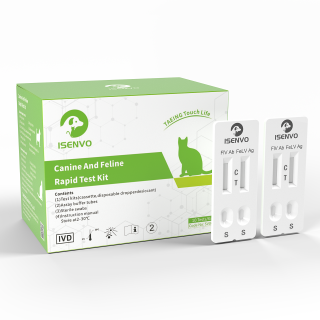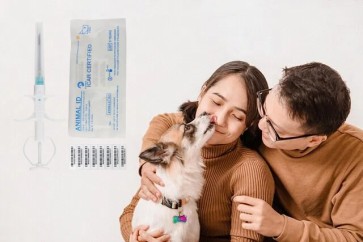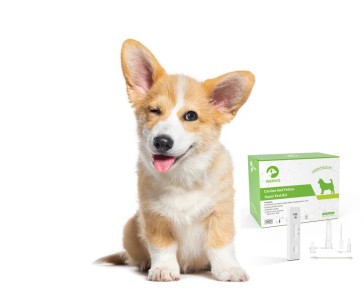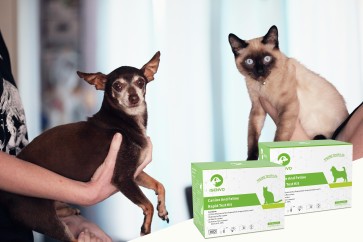<style> p { text-indent: 2em; /* 设置缩进距离为2个字母的宽度 */ } </style> <p>Feline Immunodeficiency Virus or Feline FIV (FelineImmunodeficiency Virus) is a retroviral infection first discovered in cats in the United States. The virus is often called feline HIV or feline AIDS because it has similar effects on cats. FIV-positive cats may have the virus in their systems for years before they show signs of disease.</p> <p> </p> <div align="center"><img src="https://www.taeing.com/media/.renditions/wysiwyg/x41_6.png" alt="" /></div> <p> </p> <p>What are the symptoms of FIV in cats?Because the feline FIV virus can move slowly through a cat's system, cats may remain infected for years without showing any noticeable symptoms. This virus can cause a cat to become ill once he or she begins to show signs of illness, and then remain ostensibly healthy for a period of time.<p> <ul>If your cat starts to show any of the following symptoms of FIV, it's a good idea to visit your veterinarian for a checkup: <li>Coat in poor condition</li> <li>fever that keeps coming back</li> <li>Loss of appetite</li> <li>Inflammation of the mouth and gums</li> <li>Chronic or recurring infections of the eyes, skin, upper respiratory tract, or bladder</li> <li>persistent diarrhea</li> <li>persistent eye problems</li> <li>epileptic seizure</li> <li>behavior change</li> <li>Signs of neurological disease</li></ul> <p> <p>Most cases of feline FIV are transmitted from an infected cat to another cat through deep bites. So outdoor cats are particularly vulnerable because they most often get into territorial disputes that lead to this type of injury. A female cat infected with the feline FIV virus can pass it on to her kittens. Although FIV is contagious, cats generally do not spread the virus by sharing a food bowl with other cats or through other feline contact behaviors,.</p> <ul>Such as: <li>Modify each other</li> <li>sneeze</li> <li>Sharing a cat litter tray</li></ul> <ul>Cats cannot transmit the FIV virus to humans. They can only pass FIV to another cat. You can help prevent your cat from getting the virus by: <li>Keep them indoors to avoid contact with infected cats.</li> <li>Make sure that all cats around your cat at any time have tested negative for FIV.</li> <li>Make sure recently adopted cats have been tested for FIV.</li> <li>Although FIV vaccination is generally not recommended, you can discuss it with your veterinarian.</li></ul> <p> <p>FIV infection is most common in middle-aged cats between 5 and 10 years of age. Male cats are twice as likely to be infected with FIV as female cats.</p> <p> </p> <div align="center"><img src="https://www.taeing.com/media/.renditions/wysiwyg/2_6x4.png" alt="" /></div> <p> </p> <p>If you find that you see potential signs of the FIV feline virus in your cat, but you are far away from the pet hospital or do not have time to take the kitten for examination, I would recommend that you always have a rapid test kit at home, so that if you suspect it You can test your cat when the time comes, and make sure it is safe first. If it is positive, please take it to the hospital immediately for detailed examination and treatment.</p> <p>This test kit qualitatively detects the antibodies against Feline Immunodeficiency Virus (FIV) and antigens specific to Feline Leukemia Virus (FeLV) in feline serum, plasma, or whole blood samples. Although there is currently no definitive cure for Feline Immunodeficiency Virus (FIV) and , early diagnosis, proper care, and immune support may significantly improve the prognosis of these infections. Since the clinical presentations of FeLV or FIV infections can be similar, variable, and non-specific at the early stage of infection, testing remains critical for the diagnosis of these infections. Our FIV Antibody + FeLV Antigen Rapid Test Kit assists you in the diagnosis and differentiation of Feline Immunodeficiency Virus (FIV) and Feline Leukemia Virus (FeLV) and ensures optimal care without delay.</p> <p> </p> <div align="center"><img src="https://www.taeing.com/media/.renditions/wysiwyg/6x4_01_08_-_.png" alt="" /></div> <p> </p> <ul>Advantages: <li>Aids in the early diagnosis</li> <li>2in1 test for both FIV Ab and FeLV Ag</li> <li>Accurate and sensitive results</li> <li>Clear interpretation</li></ul> <ul>Characteristics: <li>Patient type:veterinary, for felines</li> <li>Tested parameter:for antigens, for antibodies</li> <li>Micro-organism:for FIV</li> <li>Sample type:serum, plasma, whole blood</li> <li>Analysis mode:lateral flow, chromatographic immunoassay</li> <li>Format:cassette</li> <li>Result display time:10 min</li> <li>Sample volume:0.01 ml(0.00034 US fl oz)</li> <li>Specificity:98.8 %</li> <li>Sensitivity:96.8 % </li></ul> <p> <p>If the cat's test result is positive, please take the kitten to the pet hospital immediately for a detailed examination. If the infection is confirmed, treatment will be provided immediately to reduce the cat's pain. I hope all your kittens will be healthy and happy.</p>
What is feline FIV? Is it the same as human HIV?
Categories
Recent Posts
Archive

